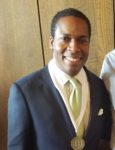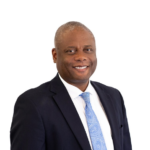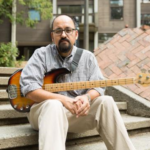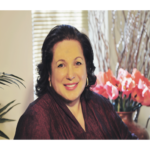Members Elect New Chair and Board Members to the 2022 Federation of State Humanities Council Board of Directors During Annual Business Meeting
The States of Iowa, Illinois, Minnesota, and Washington Represented by New Chair and Board Members
November 13, 2021 [Arlington, VA] – The Federation of State Humanities Councils announces the election of Paxton Williams as chair and three new members to its board of directors by the Federation membership, effective November 13, 2021. Williams succeeds Susan McCarthy as chair. The new board members include one humanities council executive director, Kevin Lindsey (MN), and two public members, Juana Guzman (IL) and Mark Y. Miyake (WA).
“We are grateful to have Paxton Williams as our chair and thank Susan McCarthy for her service and steady leadership during a period of much change and uncertainty,” said Federation President Phoebe Stein. “The breadth of experience and perspective these new members bring to the board will undoubtedly bolster the Federation’s work to support the public humanities and our humanities council community in the coming years.”
About the New Chair:
 Paxton Williams is an attorney, former non-profit executive, and actor/playwright/producer who believes in the power of the humanities to connect, convince, challenge, and change. From 2005 to 2009, Williams was executive director of the George Washington Carver Birthplace Association, a non-profit organization that works to advance Carver’s historical, scientific, and educational legacy through its support of the National Park Service at Carver National Monument and other programming. Williams has continued to support and share Carver’s legacy by serving as associate producer for the Iowa PBS documentary on Carver; serving as content expert on the National Geographic Reader series book on Carver; and by speaking to media such as National Public Radio and the Royal Horticultural Society’s podcast. Additionally, Williams co-authored a chapter on US electoral politics for a book published by the Federal Institute for Access to Public Information in Mexico City.
Paxton Williams is an attorney, former non-profit executive, and actor/playwright/producer who believes in the power of the humanities to connect, convince, challenge, and change. From 2005 to 2009, Williams was executive director of the George Washington Carver Birthplace Association, a non-profit organization that works to advance Carver’s historical, scientific, and educational legacy through its support of the National Park Service at Carver National Monument and other programming. Williams has continued to support and share Carver’s legacy by serving as associate producer for the Iowa PBS documentary on Carver; serving as content expert on the National Geographic Reader series book on Carver; and by speaking to media such as National Public Radio and the Royal Horticultural Society’s podcast. Additionally, Williams co-authored a chapter on US electoral politics for a book published by the Federal Institute for Access to Public Information in Mexico City.
As an artist, Williams created a one-man play in 2000 on the life of George Washington Carver that he has performed more than 400 times in 24 states and England before audiences that included elementary school children, underserved youth, the incarcerated, governors and senators, scientists, corporate and civic leaders, and knights and dames. Williams’ adaptation of Othello premiered in 2010 at the Community Theatre of Southwest Missouri, and his play on the life and works of poet Paul Laurence Dunbar premiered in 2014 in Chicago at The Poetry Foundation. A proponent of the law and literature movement, Williams assisted Professor Martha Nussbaum for three consecutive biennial law and literature conferences at the University of Chicago.
Williams serves on the Board of Governors for the National Bar Association; is president of the Iowa National Bar Association; is the equity, diversity, and inclusion committee co-chair for Des Moines Metro Opera; and formerly served as a member on the State of Missouri Historical Records Advisory Board, to which he was appointed by Governor Jay Nixon and confirmed by the Missouri Senate.
A native of Bay St. Louis, Mississippi, Williams holds degrees in political science, public policy, and health care management and policy from Iowa State University, the University of Michigan, and the University of Birmingham in England, where he studied under the auspices of a Rotary Ambassadorial Scholarship. While in England, he was on staff at The Drum, then the UK’s largest arts centre devoted to the promotion of African, Afro-Caribbean, and Asian arts and culture. A graduate of the University of Chicago Law School, Williams lives in Des Moines, where he is currently an assistant attorney general in the Office of the Iowa Attorney General.
About the Elected Board Members:
For more than 40 years, Juana Guzman has served as a nationally acclaimed consultant, manager, and fundraising and earned income specialist to non-profit organizations, museums, corporate and philanthropic sectors throughout the United States.
In 2012, Guzman left her position of 13 years as the Vice-President of the National Museum of Mexican Arts (NMMA) in Chicago, the largest accredited Latino arts institution, to start her own company I Juana Know Inc., with a focus on enhanced revenue and diverse fundraising strategies for creative markets, organizational capacity building, technical assistance advisor to non-profit organizations and creative place-making/creative place-keeping.
Guzman previously served as the Director of Community Cultural Development for the City of Chicago’s Department of Cultural Affairs (DCA) for 18 years. Guzman served as a team technical advisor, consultant for the Ford Foundation’s Shifting Sands Initiative in New York City, NY that focused on funding diverse non-profit organizations throughout the United States. She also served as a consultant for Leveraging Investments in Creativity (LINC) in New York City. Guzman also served as a technical advisor from 2018-2020 to the Joyce Foundation in Chicago as part of the “Artist Sustainability” Summits in Indianapolis, Cleveland, and Milwaukee.
Currently, Guzman is serving as an associate consultant for the DeVos Institute of Arts Management as part of the Bloomberg Philanthropies’ Arts Innovation in Management (AIM). Guzman is also serving as the designer and co-curator for the Center of Mexican American Studies portable and virtual digital board “Latino Cartographies.”
She is the co-founder of the National Association of Latino Arts Culture and the co-founder of the internationally-acclaimed Sor Juana Ines de la Cruz festival in Chicago, where she served from 1998 to 2000. Guzman has served on the board of directors for Illinois Humanities and on the board of directors for 3Arts, an advisory board member for iheartmedia.com (formerly Clear Channel), and is a volunteer for Mujeres Latinas en Accion, which serves women impacted by domestic violence. In 2017, Guzman received the Women’s Caucus for Art Lifetime Achievement Award in Washington, DC.
 Kevin Lindsey, J.D. is the executive director of the Minnesota Humanities Center. A widely respected advocate and lawyer with a wealth of experience in public policy and education reform and a proven change-maker, Lindsey has focused his career on finding solutions to complex issues and strengthening institutions. Lindsey has a passion for inclusion for all, building a stronger democracy, and leveraging the power of personal stories.
Kevin Lindsey, J.D. is the executive director of the Minnesota Humanities Center. A widely respected advocate and lawyer with a wealth of experience in public policy and education reform and a proven change-maker, Lindsey has focused his career on finding solutions to complex issues and strengthening institutions. Lindsey has a passion for inclusion for all, building a stronger democracy, and leveraging the power of personal stories.
As Commissioner of the Minnesota Department of Human Rights from 2011 to 2019, Lindsey led the department to prominence as a positive change agent across Minnesota and nationally, transforming how people think about diversity and inclusion. Incorporating culture and history, he facilitated community conversations to address human rights issues, discrimination, and inequity.
With a deep commitment to public service, Lindsey has held numerous governmental and nonprofit board roles, including Board Chair and Interim Executive Director of Walker West Music Academy. He currently serves on the Board of Directors for Growth and Justice, an organization seeking to create inclusive employment and business practices for all in Minnesota.
Lindsey received his J.D. and B.S. in Political Science from the University of Iowa, where as a student he served as editor-in-chief of the Iowa Law Review. He was honored by his alma mater with the 2017 Iowa Law Review Distinguished Alumni Award. Kevin was also an AARP Minnesota and Pollen 2018 “50 Over 50” honoree and received the 2017 Minnesota Lawyer Diversity and Inclusion Award.
 Mark Y. Miyake is an Assistant Professor of Music and Society at Fairhaven College and leads the program in Audio Technology, Music, and Society at Western Washington University. He also currently serves on the boards of Humanities Washington, the Center for Washington Cultural Traditions (the Washington State agency charged with supporting community and traditional arts in the state), and Make.Shift Art Space (Bellingham’s primary non-profit all-ages space for music and art). He holds a rotating executive position with the Northwest Chapter of the Society for Ethnomusicology. Miyake has also recently served on several major awards and grants panels for the National Endowment for the Arts. Before coming to Fairhaven in 2015, he served as Assistant Professor of The Arts and Social Sciences at Empire State College of the State University of New York and as the college-wide faculty convener for their Arts programs.
Mark Y. Miyake is an Assistant Professor of Music and Society at Fairhaven College and leads the program in Audio Technology, Music, and Society at Western Washington University. He also currently serves on the boards of Humanities Washington, the Center for Washington Cultural Traditions (the Washington State agency charged with supporting community and traditional arts in the state), and Make.Shift Art Space (Bellingham’s primary non-profit all-ages space for music and art). He holds a rotating executive position with the Northwest Chapter of the Society for Ethnomusicology. Miyake has also recently served on several major awards and grants panels for the National Endowment for the Arts. Before coming to Fairhaven in 2015, he served as Assistant Professor of The Arts and Social Sciences at Empire State College of the State University of New York and as the college-wide faculty convener for their Arts programs.
During his time on the East Coast, he also served as the Chair of the Folk Arts Panel of the New York State Council for the Arts (as well as on several other major panels at NYSCA and at the New York Foundation for the Arts) and as the President of the Middle Atlantic Folklife Association. Prior to working in New York, he earned a BA in Ethnomusicology and History from Indiana University and an MA and a PhD in Folklore and Ethnomusicology from the same institution while teaching, writing, and conducting ethnographic research at Indiana University and the University of Chicago for 13 years.
Miyake’s teaching and research interests revolve around artistic production in cultural context. He is particularly interested in the content of these performances themselves, the physical, social, and cultural contexts in which they are performed, and the ways in which such performances are closely related to larger social and cultural systems—his most recent extensive research has been on the discourse on race within the bluegrass music community. Miyake also has an extensive background in the music industry as a professional musician, artist manager, venue manager, and audio engineer and producer and has performed, over the last 25 years, on several different instruments in numerous groups varying in many different musical styles including rock, country, heavy metal, bluegrass, jazz, and regional musics from Latin America and Africa. Miyake’s family immigrated to the United States when he was two years old, and he has lived most of his life in New York, Chicago, and Indiana.
About the Federation of State Humanities Councils
Founded in 1977, the Federation of State Humanities Councils is the national member association of the US state and jurisdictional humanities councils. Our purpose is to provide leadership, advocacy, and information to help members advance programs that engage millions of citizens across diverse populations in community and civic life.
About the Councils
The state and jurisdictional humanities councils are independent nonprofit organizations supporting and creating grassroots humanities programs and community-based activities. Humanities councils were established by Congress in the early 1970s and receive an annual congressional appropriation through the National Endowment for the Humanities, which most councils supplement with state and private funding.


